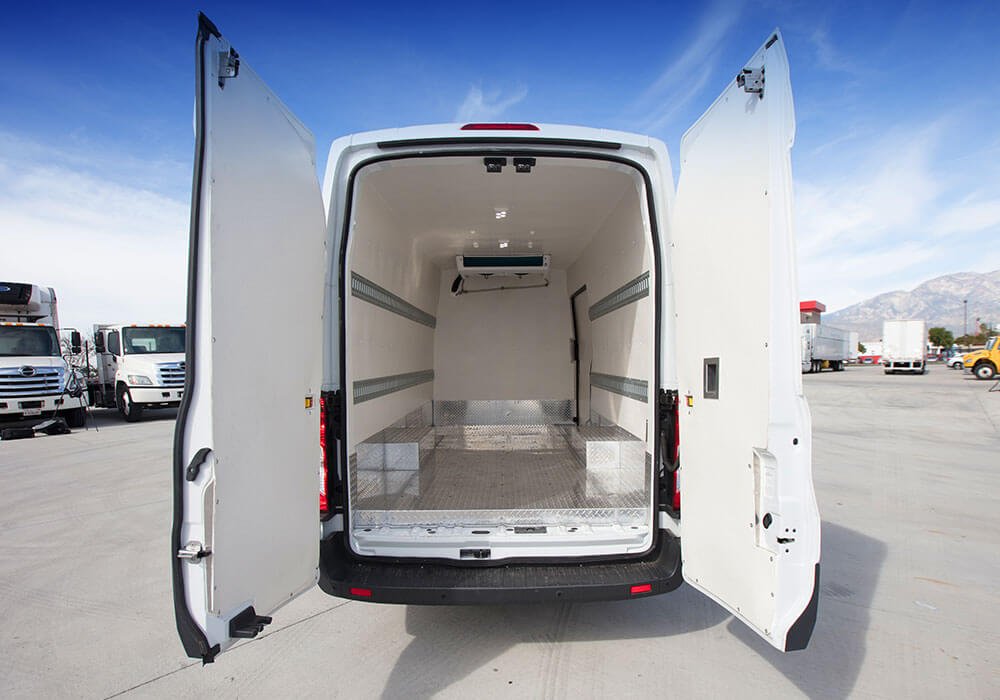SFDA-licensed warehouses are a logistical cornerstone for maintaining the safety and quality of products in Saudi Arabia. These warehouses play a crucial role in ensuring that food and pharmaceutical products are stored according to the highest global standards, safeguarding consumer health, and bolstering trust in local and international markets.
By enforcing stringent SFDA warehouse regulations that cover all aspects of storage, the SFDA aims to protect products from contamination and spoilage, ensuring they reach consumers with the highest quality possible.
Given the economic developments and the continuous increase in product consumption, these warehouses are essential for enhancing food and drug security and supporting Saudi Arabia’s Vision 2030 for sustainable development and economic prosperity.
This article will discuss the importance of SFDA-licensed warehouses and their role in ensuring product safety and quality. Additionally, we will highlight the SFDA warehouse regulations and standards imposed by the SFDA to achieve these vital objectives.
What is the Saudi Food and Drug Authority (SFDA)?
The Saudi Food and Drug Authority (SFDA) was established by Cabinet Resolution No. (1) on 7/1/1424 AH as an independent entity with a legal personality reporting directly to the Prime Minister.
The SFDA is tasked with procedural, executive, and regulatory duties previously handled by various agencies to ensure the safety of food and drugs for humans and animals, as well as the safety of biological and chemical preparations and electronic products affecting human health.
The SFDA Warehouse Regulations
The Saudi Food and Drug Authority (SFDA) implements stringent regulations for warehouses to ensure the safety and quality of stored products. These regulations cover various aspects, including structural requirements, storage conditions, and health and safety procedures.
The primary aim is to protect consumer health and maintain product integrity. Below are some key components of the SFDA warehouse regulations:
1. Structural Requirements
- Building Design: Warehouses must be designed to meet specific technical standards, including proper ventilation systems, temperature and humidity control, and easy maintenance and cleaning to prevent contamination.
- Dedicated Areas: Separate areas must be designated for storing different types of products to avoid cross-contamination. For example, food products should not be stored alongside pharmaceuticals.
2. Storage Conditions
- Temperature and Humidity Control: Advanced systems must be installed to monitor and control the temperature and humidity levels to ensure optimal storage conditions for various products, including food, pharmaceuticals, and cosmetics.
- Cleanliness: High standards of cleanliness must be maintained within the warehouse. Regular cleaning schedules and maintenance protocols should be followed to comply with health and safety requirements.
3. Health and Safety Procedures
- Pest Control: Effective pest control programs must be implemented to prevent infestations that could compromise product safety and quality.
- Handling and Transportation: According to SFDA warehouse regulations, proper procedures must be established for receiving, handling, and transporting goods to prevent damage and ensure that products remain safe for consumption.
4. Documentation and Record-Keeping
- Inventory Management: Warehouses must maintain accurate and detailed records of all products stored, including their origin, batch numbers, and expiry dates. This helps in tracking and managing inventory efficiently.
- Compliance Records: Documentation proving compliance with SFDA regulations must be kept up-to-date and readily available for inspection.
5. Licensing and Audits
- Licensing: Warehouses must obtain proper licensing from the SFDA, which involves meeting all regulatory requirements and passing initial inspections.
- Regular Audits: SFDA conducts regular audits and inspections to ensure continuous compliance with its regulations.
SFDA Warehouse Regulations: Required Documents for Licensing

- Municipal License: Copy of the municipal license for the warehouse.
- Operating License or Lease Agreement: Required if the warehouse is located within industrial cities under the Saudi Authority for Industrial Cities and Technology Zones.
- Lease Agreement: If the applicant is renting a space within a warehouse.
- Logistics Services License: Issued by the Ministry of Transport and Logistics if the activity includes logistics services in the commercial register and municipal license.
Steps for Obtaining the License
- Application Submission: Apply via the SFDA’s online portal “GHAD”.
- Complete Procedures: Complete the remaining procedures with relevant authorities such as the Ministry of Municipal and Rural Affairs and Civil Defense.
- Warehouse Preparation: Prepare the warehouse according to the required technical specifications.
- Final Submission: After preparing the warehouse, submit the final application for the license via the unified electronic system “GHAD”.
Technical Requirements
- Gulf Technical Regulation No. (GSO 168): Requirements for dry and packaged food storage warehouses.
- Gulf Technical Regulation No. (GSO 323): General requirements for the transport and storage of refrigerated and frozen foods.
- Gulf Technical Regulation No. (GSO 969): General requirements for freezing and refrigeration warehouses for food products.
- Gulf Standard (GSO 968): Definitions, classification, and terms for freezing and refrigeration warehouses for food products.
- Saudi Technical Regulation (SFDA FD 5014-2021): Packaging and wrapping of low-risk products within food warehouses.
- Gulf Technical Regulation (GSO 21): Health conditions in food factories and workers.
- Gulf Technical Regulation (GSO 9): Labels of packaged food products.
SFDA Warehouse Regulations: Licensing Duration and Fees

- Duration: Applicants can choose a license duration of one year.
- Fees:
- Pharmaceutical Division (Drugs, MD supplies, Cosmetics..etc): 800 SAR per license per year.
- Food: 1012 SAR per license per year
- Feed and additives: No Fees
Violations and Penalties
According to the Food Law issued by Royal Decree, the SFDA imposes penalties on violators, including fines and other necessary measures.
Complying with the SFDA warehouse regulations ensures adherence to health and quality standards, enhancing the safety of stored products and consumer trust.
By providing the required documents and adhering to technical requirements, warehouses can obtain the necessary licenses to operate efficiently and safely.
Types of the ٍSFDA Licensed Warehouses
The Saudi Food and Drug Authority (SFDA) licenses several types of warehouses to ensure the safe storage of various products, each adhering to specific regulations and standards. The main types of warehouses licensed by the SFDA include:
-
- Food Warehouses.
- Medical Warehouses.
- Cosmetics Warehouses.
- Chemical Warehouses.
- Health & Herbal Products Warehouses.
- Nutritional Supplements Warehouses.
- Drugs and Medicated Feed Additives.
These warehouses are strategically important as they provide high levels of security, advanced inventory management systems, and compliance with both local and international regulations, enhancing operational efficiency and market accessibility for businesses
7 Benefits of Licensing Warehouses from the Saudi Food and Drug Authority (SFDA)

- Compliance with Health Standards: Obtaining a license from the SFDA ensures that the warehouse adheres to the highest approved health standards. This compliance enhances consumer confidence and guarantees the safety of stored products under SFDA warehouse regulations.
- Maintaining Product Quality: Licensed warehouses feature advanced systems for temperature and humidity control, ensuring the preservation of the quality of food, medical products, and cosmetics during storage. These systems reduce the risk of spoilage and effectively maintain the nutritional properties and flavors.
- Improving Operational Efficiency: Using a warehouse licensed by the SFDA enhances the operational efficiency of companies by streamlining logistics and improving the organized and efficient storage of products. This improvement enables companies to provide better and more efficient services.
- Safety and Security: Licensed warehouses provide high levels of security to protect inventory from theft or damage. They are also equipped with 24-hour monitoring and guarding systems, increasing the security level and peace of mind for suppliers and customers.
- Ease of Market Access: Storing products in licensed warehouses enhances companies’ ability to expand their distribution in local and international markets, as many markets and distributors prefer to deal with products stored in approved facilities.
- Reducing Legal and Regulatory Risks: Storing products in a licensed warehouse reduces the legal and regulatory risks associated with non-compliance with regulations, protecting against potential fines or legal complications. Adhering to SFDA warehouse regulations ensures that companies remain compliant with all relevant laws.
- Enhancing Trust: Companies that choose to store their products in an SFDA-licensed warehouse enhance their reputation as reliable providers of safe and high-quality food, medical products, and cosmetics. This good reputation helps companies build strong relationships with customers and distributors.
In Conclusion
According to the SFDA warehouse regulations, licensing warehouses ensures the safety and quality of stored products. Compliance with the stringent standards imposed by the authority enhances trust between consumers and suppliers alike, ensuring that companies can offer their products at the highest levels of quality and safety.
At “3rd Partner”, we do not only provide licensing services for warehouses but also offer storage solutions for third parties in SFDA-licensed warehouses. This contributes to facilitating storage and transportation operations, ensuring full compliance with health and technical standards.
With our extensive experience and specialized team, “3rd Partner“ provides comprehensive consultations to assist clients at every step of the licensing and storage process. Whether it is through site evaluation, document preparation, or coordination with relevant authorities, the company ensures that everything is done efficiently and smoothly.
Ultimately, choosing “3rd Partner” as a strategic partner in storage and licensing is a wise decision that enhances the operational efficiency of companies and supports their sustainable success in local and international markets. Do not hesitate to contact us today.











